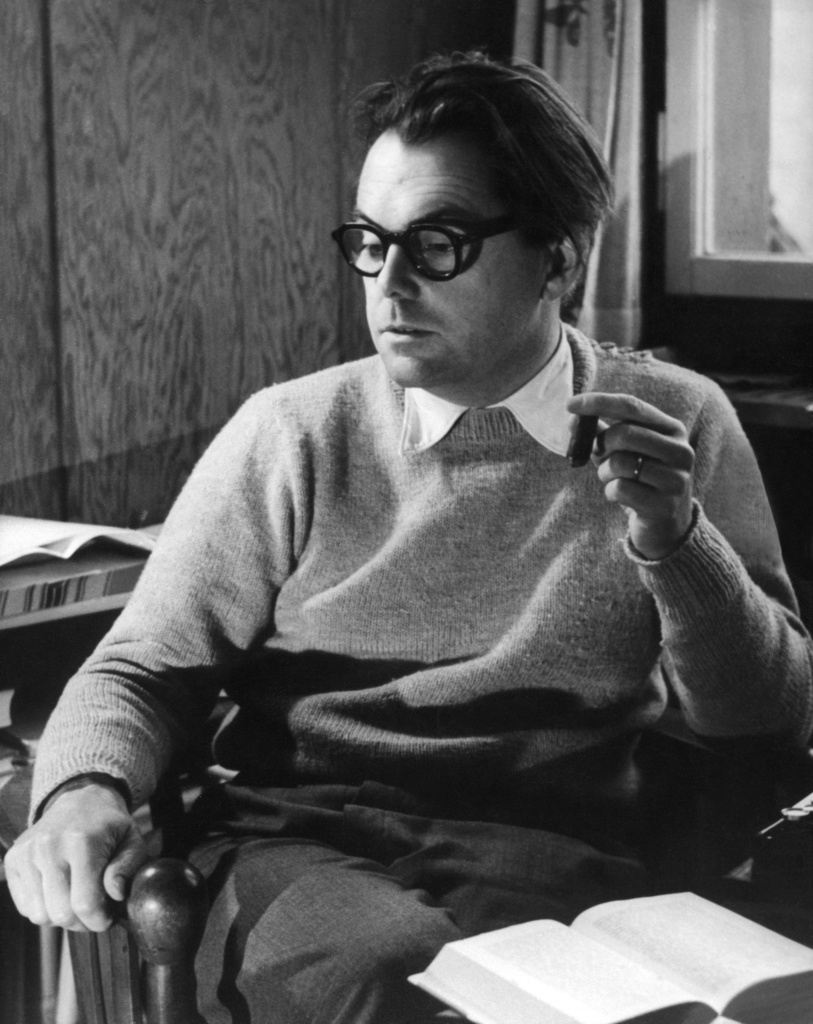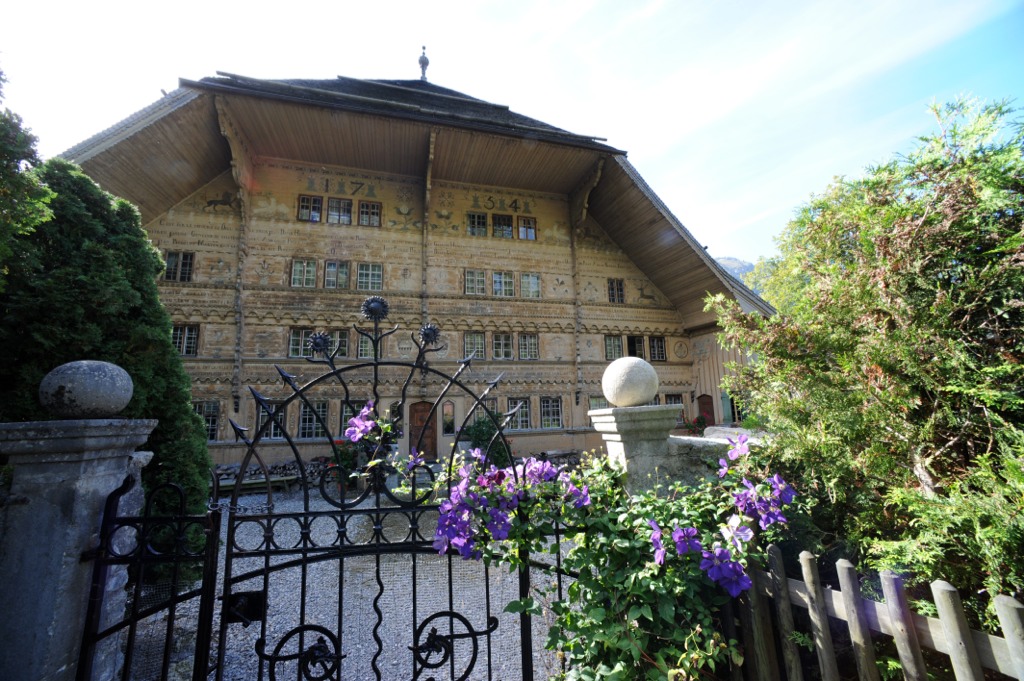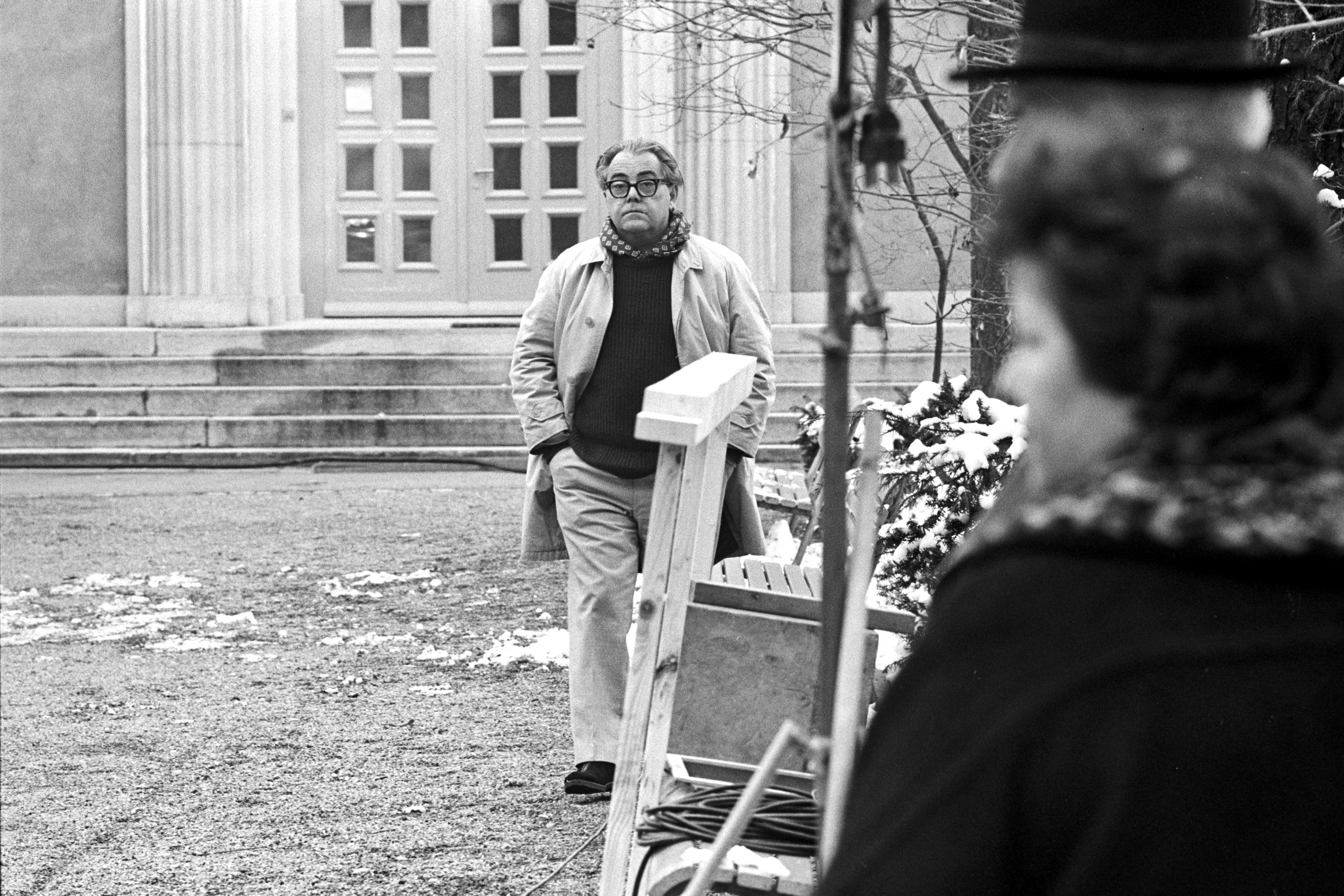Max Frisch “analysed everything he saw”

May 15 marked the 100th anniversary of the birth of Max Frisch, one of Switzerland’s best known and controversial authors.
Peter von Matt, the president of the Max Frisch Foundation board, tells swissinfo.ch about what made Frisch tick, his criticism of his homeland and why the author couldn’t live without women.
There has been a lot of hype over Frisch this year – also the 20th anniversary of his death – something of which the author would have been proud, although he wouldn’t have shown it, says von Matt, who knew Frisch personally.
Von Matt, an emeritus professor of German language literature, recently oversaw the publication of fragments of a forgotten third Frisch diary. The author of Homo Faber and I’m Not Stiller had not wanted its contents to be made public.
swissinfo.ch: What kind of man was Frisch?
Peter von Matt: He was quite a serious man, a man who analysed everything he saw. You always felt you were being scrutinised when you sat across from him. But he was also very friendly and was a man who liked jokes, to eat and drink well. He wasn’t a sort of giant or a man to be afraid of but there always was, and this is my personal reaction, a sort of distance.
swissinfo.ch: He is considered a giant of Swiss literature, but how does he fit into world literature?
P.v.M.: It’s very difficult to assess the presence of a writer in the whole world. He has been and is still being translated into many languages. But for instance in the United States, he isn’t an author of the presence of Philip Roth or Ernest Hemingway, whereas in Europe he has always been an author of this grade.
swissinfo.ch: But Frisch actually spent a lot of time in the US.
P.v.M.: He was traumatised by having to stay in Switzerland during the Second World War, sitting there like behind a wall. As soon as it was over, he travelled through Europe’s destroyed cities and he wrote about it in his first diary of 1946-9. It’s great literature but it’s also a document of European history.
And this went on for his whole life. He always stayed in Switzerland for a certain time and then he had to get out, and one of his most important destinations was the US, especially New York. But, after half a year, he had to start over again and he went back to Switzerland or Paris, Berlin or Rome. He had a nomadic way of life, but he never forgot Switzerland. He had a difficult relationship with his country, but basically he loved Switzerland and especially Zurich.
swissinfo.ch: He was very critical of his homeland.
P.v.M.: He was critical of Switzerland because he loved this country and wanted it to have the mentality of renewing itself, of changing. For him life was a process of endless change and as soon as he saw things getting stuck, he attacked. He attacked all the walls and sometimes he attacked where there were no walls at all. This was very problematic for him during the Cold War. He attacked both political fronts and he was attacked by both.
He was also very heavily attacked by quite a lot of the Swiss political world and they called him a communist. But he was a very important figure for younger people and those who felt they were living in a modern world.
swissinfo.ch: Was the diary Frisch’s breakthrough work?
P.v.M.: This first diary was certainly a book that made him quite well known in Germany because he was the first outside author who wrote about Germany without being judgemental… But as a writer, a novelist, he was at his absolute best with I’m Not Stiller from 1954. This book was contemporary with Albert Camus in France, William Faulkner in America and Graham Greene in Britain, and ensured he belonged to the European cream of writers.
swissinfo.ch: It is often said that the search for identity is a thread through his works.
P.v.M.: Identity is the most quoted word in connection with Max Frisch but I always think that it’s not the main point, it’s actually the freedom of the subject. He always knew who he was, he never had an identity crisis, but he always feared being defined by society. This might lead to an identity crisis, but identity as such is not the problem, the problem is the individual and the power of the others who try to define this individual.
swissinfo.ch: Frisch also had a rather colourful private life.
P.v.M.: Yes, colourful is probably the correct word! He was a man who couldn’t live without women and there was sometimes more than one woman in his life at the same time. He had four or five very important long-lasting loves, but there were also quite a lot of affairs.
This is connected with what we talked about before, that also in love he had the feeling I must start anew and this wasn’t the best condition for a long-lasting relationship. It led to some disasters: the best known one was with the famous Austrian poet Ingeborg Bachmann. They lived together for several years and they broke up in a very painful way.
swissinfo.ch: Why did you publish the fragments of the third Frisch diary?
P.v.M.: He wrote two diaries and started a third diary at the beginning of the 1980s but then stopped the writing process. When I found these fragments I thought they are so important, they are partly so brilliantly written, that it’s necessary to print them. It was quite a success, but there were people who didn’t like this and said Frisch didn’t want to publish these things himself, so we mustn’t do it.
I don’t think this is right. There is such a public interest in an author of his importance that we should print things that are interesting and are connected with his work, life and thinking.
Von Matt’s tips: “The best introduction is Homo Faber (1957) and then the thicker and more difficult but also more witty novel I’m Not Stiller (1954). Man in the Holocene (1979) is a work of later years and a very impressive sort of tale.”
Plays: “The famous two are Andorra (1961) and Biedermann und die Brandstifter” (1958; The Firebugs, also published as The Fire Raisers).
Diaries: Tagebuch 1946–1949 and Tagebuch 1966–1971, known as Sketchbooks in English. Frisch abandoned the third. Fragments were found in the Max Frisch Archive in Zurich in 2009. These were published as Sketches for a Third Diary in 2010.
Max Frisch was born on May 15, 1911, Zurich and died on April 4, 1991 in Zurich and was a dramatist and novelist.
He started off as a journalist before following in his father’s footsteps to become an architect, designing one of Zurich’s public swimming pools. He kept writing. In 1955, buoyed by his success, he became a full-time writer.
He was married twice: first to Gertrud von Meyenburg (1942, three children). Frisch left his family in 1954. He later married Marianne Oellers in 1968; they divorced in 1979.
The Max Frisch Archive is an independent research institution belonging to the Max Frisch Foundation. Frisch’s son Peter sits on the board. It has been open to the public since 1983.
Frisch left documents and letters in a sealed bank vault with instructions they could be opened 20 years after his death. This has now been done but no publication is foreseen yet as some of the contents are private.
Centenary celebrations: in addition to books, lectures, his plays, exhibitions (notably Zurich and Ticino) and a big presence in the media: the Federal Mint is issuing a SFr20 ($23) silver coin and Swiss Post is issuing a special SFr1 stamp showing the author in “a reflective pose”.

In compliance with the JTI standards
More: SWI swissinfo.ch certified by the Journalism Trust Initiative












You can find an overview of ongoing debates with our journalists here . Please join us!
If you want to start a conversation about a topic raised in this article or want to report factual errors, email us at english@swissinfo.ch.